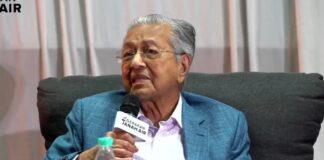JAKARTA, Sept 6 — Malaysia believes South Korea’s engagement and support through the South Korea-ASEAN Solidarity Initiative and its strategies in the ASEAN Outlook on the Indo-Pacific would align well with the region’s collective efforts to rebuild its member countries, Prime Minister Datuk Seri Anwar Ibrahim said.
He said South Korea’s initiatives aimed at economic recovery and resilience following the impacts of COVID-19, geopolitical rivalries, and the threat of climate change could facilitate digital literacy, innovative technology, and interconnected digital infrastructure to promote economic growth and empower people in the region.
Speaking at the 24th ASEAN-South Korea Summit, Anwar said in the Malaysian context, the country’s new Madani Economy Framework emphasises empowering and recognising its small and medium-sized enterprises by facilitating their transition to a digital business model.
“We emphasise the importance of green growth and climate sustainability, along with optimising land use for food security. Our priority is to achieve low carbon and climate-resilient socio-economic development while diligently conserving national resources and the ecosystem,” he said.
South Korea’s President Yoon Suk Yeol attended the Summit today led by Indonesian President Joko Widodo in conjunction with the 43rd ASEAN Summit here.
As addressing climate change requires collective and concerted actions by all countries, Anwar said Malaysia welcomes the establishment of the ASEAN-South Korea Cooperation Centre for Carbon Neutrality and Green Transition.
He also welcomed the proposal to establish an ASEAN-South Korea Comprehensive Strategic Partnership in conjunction with the 35th anniversary of ASEAN-South Korea dialogue relations next year and looked forward to future ASEAN-South Korea cooperation that embraces transformative megatrends.
During the 26th ASEAN-Japan Summit attended by Japan’s Prime Minister Fumio Kishida, Anwar pointed out that both sides need to redouble efforts to address climate change by supporting the use of renewable energy.
He said ASEAN could leverage Japan’s expertise in developing clean energy technology and renewable energy best practices, including through the ASEAN-Japan Energy Efficiency Partnership and ASEAN-Japan Climate Agenda 2.0.
“Climate change poses a real threat not only to our countries but also to the planet,” Anwar added.
















